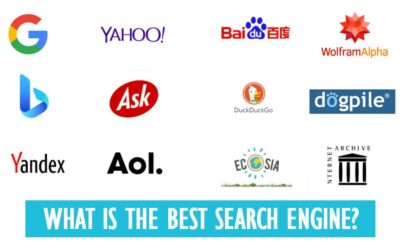Every business is likely to require the services of an auditor at some point in time. Whether that is for assessing a company as part of a merger or acquisition, performing a risk audit, vetting a company or as part of a general inspection audit.
Internal and external Auditors are in high demand, and good ones are hard to find. Hiring the correct auditor for your specific needs is extremely important.
Here is a summary of the top 10 qualities of an auditor to look out for:
- They have relevant industry experience
- They can converse effectively
- They must be able to build relationships
- They are team players
- They have the highest degree of integrity
- They can understand different business needs
- They harness technology
- They understand data
- They want to learn
- They are problem solvers
Quality auditors (internal or external auditing services) form an integral part of any company’s structure. They help with risk management, implement controls, and ensure good governance is maintained throughout the business.
Attributes Of An Auditor
Auditing has been in a state of evolution for many years and it’s continuing to change rapidly. That is why good auditors must evolve too, they must learn new skills to remain up-to-date with regulatory changes that take place over time – as well as adapt to economic uncertainty which forces them to be more agile.
An agile auditor will absorb new information as well as ever-changing business conditions – they will likely have a flexible mind and strong attitude.
There has always been a demand for strong technical and analytical skills, especially in the digital age. But it’s now more widely recognised that soft skills are a key attribute of an auditor and this can set auditors apart.
These so-called “non-technical” attributes have seen increased value among companies who what to employ an auditor to help with overall performance, both internally and externally, on behalf of clients or customers they work with.
Examples include – business acumen (the ability to assess risks and to communicate these effectively), communication/people skills including coaching others when needed and critical thinking which can help with better decision-making.
Choosing A High Quality Auditor
It is imperative for companies who want to keep up with changes in their industry or sector, or need to demonstrate compliance, but lack internal resources (due to skillsets or lack of funds to employ a full-time auditor) – turn towards hiring a professional external auditing service.
Internal auditing is a crucial and often necessary requirement for any company, but it’s especially important in today’s world where there are so many regulations. Auditors have unique skill sets that allow them to keep an eye on your company as well as help you succeed by driving improvements at all levels of the business.
Hiring an external auditor can help those in business understand everything from financials right down to auditing physical assets. Often this involves looking at risk management as part of the audit process – as it has become easier than ever to identify issues and stop something drastic from happening in the future.
By hiring the services of an experienced auditor – there will always be someone looking out for things.
Top 10 Auditor Attributes & Traits
When you are seeking the services of an auditor here are the top 10 traits to look for:
1 . They have relevant industry experience
The best way to ensure that an audit is completed successfully and efficiently would be to hire an auditor with the appropriate qualifications and experience. For example, to qualify as a qualified accountant, they must have knowledge of finance law such as taxation and business management systems.
However, these skills alone won’t suffice for this position, as it takes years of experience in order to become knowledgeable about all aspects related to an audit process.
2. They can converse effectively
A recent shift in how businesses communicate (in-person and remotely due to covid) has placed new demands on auditors.
Communicating with stakeholders and internal staff goes beyond simply producing reports and speaking to those who commissioned the audit – it also requires two-way conversations with the rest of the business to truly understand what they are going through every day.
The transformation from the traditional auditor is due largely because now auditors must be able to write clear responses about important issues that come up, they must be able to present these visually, as well as communicate those thoughts effectively without being too salesy.
With so much information vying for board members’ attention at any given time, visual analytics can make it easier to manage this entire process.
3. They must be able to build relationships
A good Auditor will be able to interact with business owners, staff and stakeholders throughout the company in order for them to appreciate how important it is that the audit is performed correctly and to convey the outcomes positively.

Auditors who can build high levels of trust while still getting audits completed on time, generally perform the best. Building trust can take time – as auditors can sometimes be seen as “the enemy”. By fostering relationships throughout a company, it will be to the benefit of both parties in the long term.
4. They are team players
It’s not enough to be a good auditor. Performing audits is often all about the people within a company.
Picture the olden days of a visit from the “VAT man” – no one wants to have that forced on their team.
When hiring an external auditing service, you will want to ensure that you can cultivate a relationship with the auditor and that they become a team player with your staff. This will make the whole experience much simpler and enjoyable.
A quality auditor expects to work with a diverse group of people, they know they require collaboration from other people in order for them to do their job.
It is important that auditors have certain leadership and change management skills too, especially if they have to influence others at the end of the audit.
If you are interested in playing team building activities, read our free guide to improve team bonding.
5. They have the highest degree of integrity
In order to ensure the best outcome, one of the most desirable traits of an auditor is to have a deep understanding of how an organisation operates. Their goal is to provide objective analysis and offer advice from their findings, while also influencing future changes based on recommendations made by them.
This may be subject to some disagreement, especially if it conflicts with other departments’ interests or beliefs about what would work better for that particular company’s situation.
Where an auditor requires the highest degree of integrity, is when dealing with business owners, or executive boards. The highest paid persons opinion (HPPO) can often influence the outcome of an audit – this is when an auditor must stand by their opinions – even if that means challenging someone higher up on the HPPO scale.
6. They can understand different business needs
The best auditors will adapt and work with any company structure. They will quickly gain a deep understanding of the business they are auditing – which is key for the delivery of a successful audit.
That is why it is important to select an auditor who will analyse your operations quickly, to identify strengths as well as areas that need improvement or further investigation, before formulating viable plans on how best to move the business forward.
One of the qualities of an auditor is to deliver successful audits no matter how big or small an organisation may be or what sector the company operates in.
7. They harness technology
Specialised software exists now which didn’t “in the old days” – where auditors relied mostly on techniques taught at University or back when they were trained many years ago. Today cutting-edge technology can be a major time-saver for auditors.

The technology can also identify weaknesses in cybersecurity systems, business processes, operational control systems, accounting systems and much more.
A quality auditor will harness technology to allow them to spend more time delivering ways to take the business forward, rather than crawling through reams of paperwork.
8. They understand data
Data exists in every organisation. Many business owners don’t appreciate how much data they are storing or have access to.
When it comes to performing due diligence on a company as part of a merger or acquisition or undertaking a tax audit, or a general investigation – an experienced auditor will be looking at “data”.
Data will help determine where inefficiency lies before it even takes place. Data can help define future strategic goals. When seeking an auditor, make sure one of their attributes is that they understand data (or data analytics). It will allow them to pinpoint risk areas and generate efficiencies much quicker.
9. They want to learn
The ability to remain curious and think outside the box is one of an auditor’s most valuable traits. Choosing an auditor who is a lifelong learner with an appetite for self-improvement will be good for your business.
Ask them about recent training programs or courses they have been on, what professional qualifications they have and when were these last updated.
This will be a good indicator of an auditor who is constantly learning and who is looking for innovative ways to develop your business, as opposed to an auditor who relies on training gained “20 years ago”.
10. They are problem solvers
It’s now more important than ever, that an auditor is also a problem-solver. It’s all very well being able to identify issues, it’s more important to come up with innovative solutions.
A helpful characteristic of an auditor is to have a forward-thinking approach if they want their clients’ businesses to achieve long-term success.
Innovative auditors don’t always follow traditional processes, instead, they come up with new ways of doing things by thinking laterally or by taking risks when necessary. This can be a valuable attribute for the business.
Types of Auditors
Aside from the characteristics of an auditor detailed above, there are different types of auditors that can assist companies.
The four main types are
1. Independent/External Auditors – these are qualified professional auditors who provide services to companies. Most people think of an auditor for accountancy purposes, such as year-end accounts.
However, with more and more compliance regulations being introduced, there has been an explosion of risk management auditors, health & safety auditor quality control auditor etc.
Likewise, companies who merge or acquire other businesses will often hire an independent auditor to perform a due diligence exercise to determine the real value of a business, or to identify any issues.
2. Internal Auditors – this is someone who is the company’s own in-house expert. They will be tasked with continually looking for weaknesses or issues within a business and providing solutions. They maintain internal control and audit the company’s internal activities.
3. Government Auditors – are commonly associated with tax auditors or the “VAT man” as mentioned previously. They work for various government agencies that are responsible for ensuring companies are abiding by the various tax laws applicable to a particular country.
4. Forensic Auditors – are generally hired to investigate fraud or criminal activities. It is the job of a forensic auditor to leave “no stone unturned” to find and document the evidence of wrong-doings within a business.
It is common for these auditors to identify embezzlement, and improper accounting practices and to offer measures to avoid these types of crimes occurring in the future.




